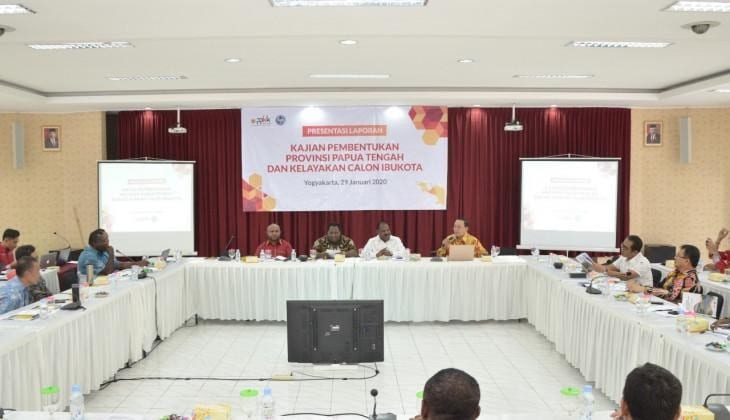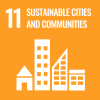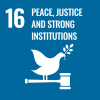
Universitas Gadjah Mada (UGM) through the Center for Capacity Building and Cooperation (PPKK) of the Faculty of Social and Political Sciences and Task Force of Papua (GTP) delivered the results of an initial study on the splitting of Central Papua in front of the regents of the province on Wednesday (29/1) at the UGM Faculty of Social and Political Sciences.
Chairman of the UGM Papua Task Force as well as Chair of the Research Team, Drs. Bambang Purwoko, M.A., said that this study was a study of government policy setting agenda that was formulated in detail in order to overcome the complicated problems in Papua. According to him, the study carried out from the beginning was not only to justify the proposal for the formation of a new province, but was placed within a broad framework of handling problems in the land of Papua more comprehensively within the framework of Papua’s Special Autonomy.
“The basis of the analysis of this study is not merely seeing the feasibility, but also emphasizes the aspect of the need for expansion. In addition, this expansion study is not only to answer local aspirations, but also to be an integral part of national strategic interests,” he said in a release received on Thursday (1/30).
He added that the results and recommendations of this study could be used as a model for broader regional structuring, especially for regions that have similar challenges and problems.
Meanwhile, one of the UGM Papua Task Force Expert Researchers, Dr. Gabriel Lele, mentioned that some of the requirements for the formation of a new autonomous region (DOB) in Central Papua have not yet been fulfilled. Even so, these conditions actually reinforce the condition of Papua which requires special intervention and instruments. According to him, without such special treatment, Papua will forever be left behind.
“In the perspective of needs, the proposed establishment of Central Papua DOB is not only seen as a political necessity, but also a social necessity with a meeting between local aspirations and national interests. Therefore, the proposed establishment of DOB in Papua is an urgent need to realize,” said the lecturer of the Department of Management and Public Policy at the UGM Faculty of Social and Political Sciences.
Gabriel Lele also stated that if in the end the proposal for the establishment of Central Papua DOB was accepted, it must be treated carefully and placed in a special context that requires special handling as well. This specificity must be followed by tighter monitoring from managerial to operational level.
Meanwhile, Prof. Purwo Santoso of the Faculty of Social and Political Sciences UGM emphasized that the proposal to establish Central Papua should not only be interpreted as merely presenting a new institution, let alone only to accommodate fleeting interests. According to him, the formation of DOB must be accompanied by new reasoning and new arrangements for special and complicated conditions such as Papua and it must be ensured in national policies and the derivative instruments that follow.
“The expansion success in answering various problems of Papua in the context of OTSUS lies precisely in the shrewdness of instrumentation and reinstrumentation that can bridge local aspirations and national strategic interests. In short, expansion is only a means that must be given more substance to be a solution to the complexity of problems in Papua”, he explained.
Regent of Nabire, Isaias Douw, S. Sos., MAP, as the Chairperson of the Central Papua Expansion Proposing Team responded optimistically to the results of the UGM study. He conveyed that Central Papua has a strong desire to advance like other regions in Indonesia.
“We don’t want Central Papua to fail a second time. We have strong economic potential and will continue to struggle,” said Isaias Douw.
Regent of Puncak, Willem Wandik S.E., M.Sc, as the study coordinator of the Proposing Team said the formation of Central Papua needed to be hastened to improve the community’s economy. Wandik also emphasized that the regents in Central Papua would follow up on the results of the study with the central government and related parties.
Regarding the location of the capital city, the UGM Papua Task Force team has conducted a study of 11 prospective districts of Central Papua. The study was conducted with a review of several aspects, namely the availability of infrastructure, interaction between regions, local political policies, topography, raw water, disaster risk, finance, and socio-economic culture.
Based on the study, there were two regions that were considered to be potential capital cities, namely Mimika Regency and Nabire Regency. Mimika excels in three criteria: as a regional catalyst, a “window” of regional culture or aspirations, and geopolitics. Meanwhile, Nabire excels in the two criteria of the capital city as the future of the region and the regional center.
Source: https://ugm.ac.id/id/berita/18976-ugm-paparkan-hasil-kajian-pemekaran-provinsi-papua-tengah



